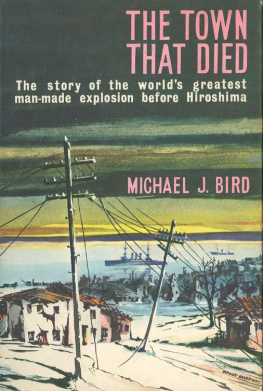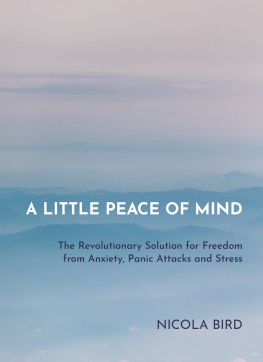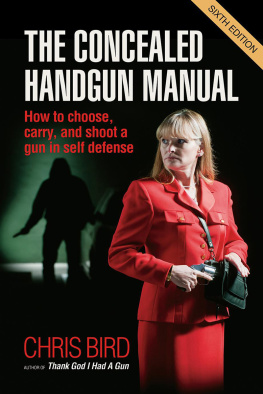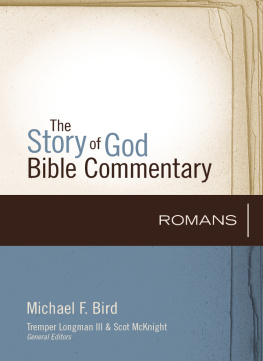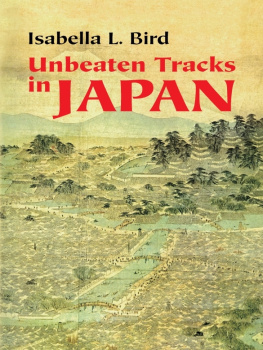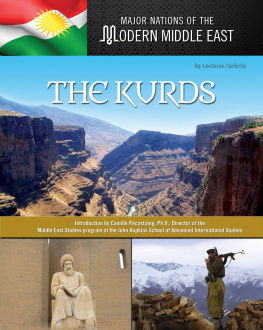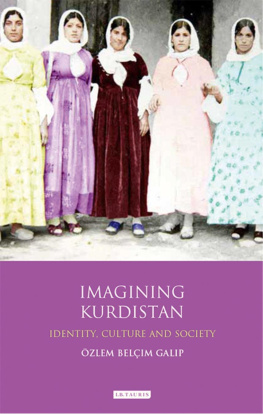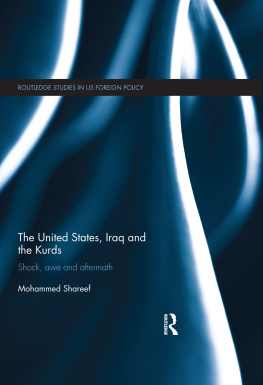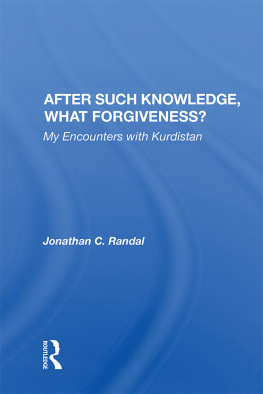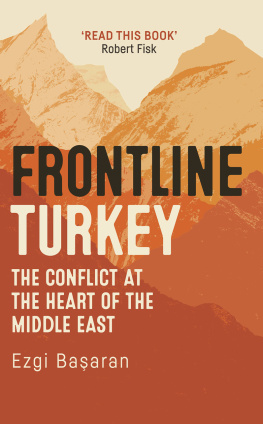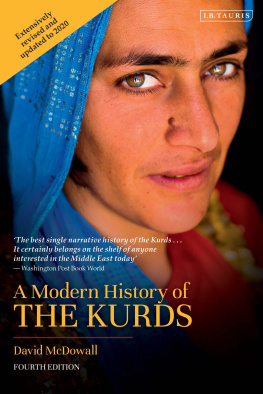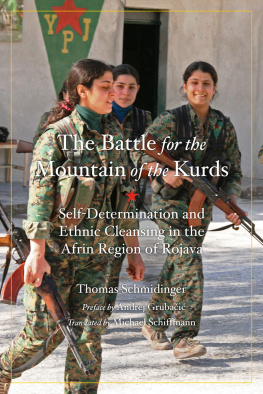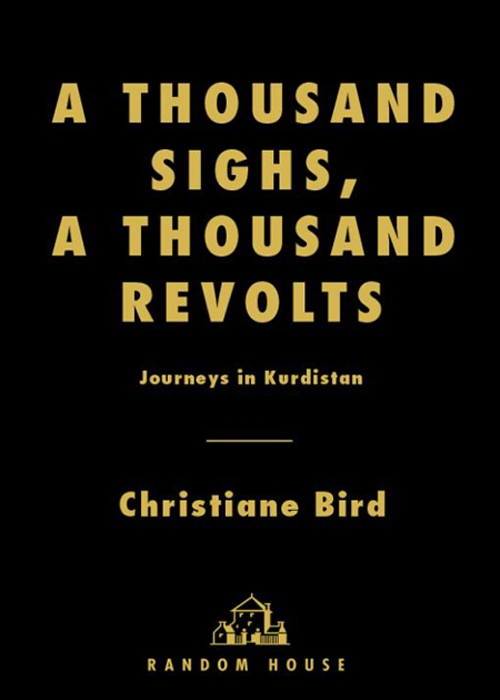
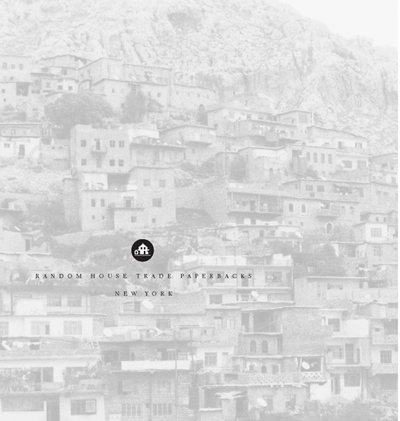
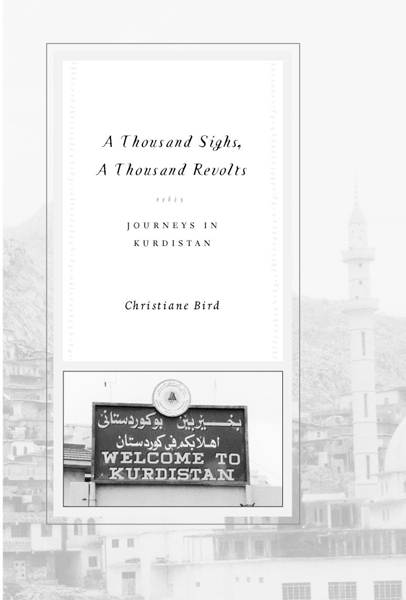
Table of Contents
PRAISE FOR A Thousand Sighs, A Thousand Revolts
Birds book is travel writing at its finestfresh, exotic, illuminating.
Seattle Post-Intelligencer
Impressive reportage, a fearless commitment to seeing what there is to see, and a strong sense of history: a fine work of literary travel, one that honors its subjects.
Kirkus Reviews (starred)
Christiane Bird writes with an open mind, an eye for detail, and a clear voice. No one who wishes to be informed on what is going on in the world can afford to skip this important book about a little known and often abused people.
MARK KURLANSKY,
author of 1968: The Year That Rocked the World
Crisp and vivid.
The Houston Chronicle
Readable and rich with detail, A Thousand Sighs, A Thousand Revolts provides an honest, often-heartbreaking portrait of a people divided by borders and even language.... This book is the best available introduction to the Kurds.
New York Post
This book contains much more than an exotic tour account.... Bird brings depth of knowledge, sensitivity and just plain courage to her pilgrimages.
Milwaukee Journal Sentinal
One of Christiane Birds revelations in A Thousand Sighs, A Thousand Revolts is that in the Middle East, one should never confuse minority with marginality. This account by a particularly attentive American woman journeying into the land of the Kurds helps readers understand the most striking feature of the Middle East: complexity.
FATEMA MERNISSI,
author of Beyond the Veil and Islam and Democracy
Bird... skillfully weaves together an overview of the Kurds past and politics with vignettes of the daily lives of individuals.
St. Petersburg Times
Timely and highly informative.
The Washington Times
As Bird travels through Kurdistan (a country that isnt on any map), she meets an array of people, from scholars to bus drivers. Each story of conflict, poverty, homelessness and suffering is like a brushstroke in a larger portrait of the Kurdish experience. Birds talent for blending reportage with illuminating tales from individuals makes this a notable and much needed work.
Publishers Weekly
Christiane Bird travels enviably and intrepidly about her selected neck of the world. In A Thousand Sighs, A Thousand Revolts, she writes intelligently, personably, tirelessly, and engrossingly about the Kurds, a people execrably abused and eminently worth learning about.
EDWARD HOAGLAND
News reports tend to reduce the Kurds to an abstract political factor, but this book restores their human face.
International Travel News
A lively and informative account... a welcome addition to the flourishing literature on the Kurds.
Middle East Journal
Acknowledgments
THIS BOOK COULD NOT HAVE BEEN WRITTEN WITHOUT THE HELP of many Kurds and scholars. Many magnanimously opened their homes and lives to me; others gave generously of their time and expertise.
For the Iraq section, I am especially indebted to Nesreen Mustafa Siddeek Berwari, who filled me in on many aspects of life in Kurdistan, hosted me in Erbil, and provided me with numerous introductions, and to Diane E. King, who gave me much invaluable advice and insight, and read the Iraq chapters in manuscript. A special thanks, too, to my kind hosts in Dohuk, Majed Sayyed Saleh and family, who helped me in innumerable ways, and to Carole A. OLeary, who first introduced me to Iraqi Kurdish affairs and also read the Iraq chapters in manuscript. Shayee Khanaka was an astute and helpful reader as well.
I am indebted to many other Iraqi Kurdish families who hosted me during my stay. My thanks to the Shamdeen family in Zakho, Muhsen Saleh Abdul Aziz and family in Amadiya, Kamerin Khairy Beg and family in Baadri, Yassim Muhammad Wossou and family in Erbil, the Rozhbayani family in Erbil, the students at the University of Salahuddin in Erbil, Guergis Yalda and family in Diana, and the family of Hamin Kak Amin Bilbas in Raniya. In Syria, the Shweish family and others who prefer to go unnamed warmly welcomed me into their homes and provided me with an excellent introduction to their country.
I also owe a great deal to the many Iraqi Kurds who went far out of their way to serve as my guides and translators, usually on an informal and voluntary basis. In Dohuk, Dr. Shawkat Bamarni, Dilovan Muhammad Amin, Dr. Saadi Namaste Bamerni, Bayan Ahmed, Yousif Chamsayidi, Zerrin Ibrahim, Dr. Khairy, Mr. Fadhil, and Dr. Jasim Elias Murad were especially helpful, with Dilovan serving as my ad hoc research assistant after I returned home. In Zahko, Nazira Shamdeen gave me especially perceptive insight into her world and culture. In Erbil, Fawzi Hariri, Rezan Yousif, Hozak Zahir, Himdad Abdul-Qahhar, Othman Rashad Mufti, and Yonadam Kanna helped me explore the city, while in Barzan, Dr. Abdullah Loqman and Saleh Mahmoud Barzani did the same. In Suleimaniyah, Nizar Ghafur Agha Said and Dildar Majeed Kittani were translators par excellence, while Safwat Rashid Sidqi, Dr. Fouad Baban, Rewaz Faiq, and Yousif Hassan Hussein showed me parts of Kurdistan that I would not have seen without them. In Halabja and Suleimaniyah, Dr. Adil Karem Fatah took much time out of a busy schedule to help me conduct numerous interviews. Also most helpful were my translators Khalid Muhammad Hassan Sharafani in Sumel, Hickmat Mustafa Mahmoud in Amadiya, Imad Salman in Chamsaida, Janet Iskail in Diana, and Ayub Nuri in Suleimaniyah.
Before leaving for Iraq and Syria, I was in contact with many experts who both encouraged me to make the trip and helped prepare me for my journey: Michael Rubin, Omar Sheikhmous, KDP and PUK representatives in the United States and Damascus, Mike Amitay, Deirdre Russo, Joost Hilterman, Dr. Ali Sindi, Kathy Fuad, and David Hirst. After I returned home, the Washington Kurdish Institute, and Stafford Clarry and Ann Mirani in Kurdistan did a superb job of sending me news stories about the Iraq war, its aftermath, and other developments in the region.
For the Iran section, I am especially grateful to Soleyman Soltanian in Tehran for his advice, hospitality, and many introductions, and to his son Babak for first introducing me to his father. My thanks as well to the Bahri, Sedighi, and Najafi families, who hosted me in Mahabad, Sanandaj, and Kermanshah respectively; to Hiwa Soofyeh, who gave me much poetic insight into Kurdish culture; and to my old friends Bahman and Chris Faratian and Babak Azimi, who welcomed me back into their country with open arms. Hasham Salami introduced me to Iranian Kurdish folklore, his son Siamand Salami filled me in on the music of the Ahl-e Haqq, Fatah Amiri and family welcomed me in Bukan, Omid Varzandeh was an excellent translator in Tehran, and Mehrdad E. Izady offered me pretrip advice. Shirin Rewaz was my gracious host in Urumieh, Nasreen Jaferi and Parang Shafai served as my able guides and hosts in Mahabad, and the Greenway conference organizers were my enthusiastic escorts in Sanandaj.
For the Turkey section, I am especially indebted to Kani Xulam, who provided me with many contact names and answered many of my questions, and to the Sevinc family in Istanbul, who went far out of their way to help me in my research. In addition, I would like to thank Henri J. Barkey for reading the Turkey chapters in manuscript; A. Celil Kaya, Sedef Esirgenc, and Hivda Ustebay for serving as my translators; Suzan Samanci for her delightful company and hospitality; and Kevin McKiernan, Sennacherib Daniel, Jordan Bell, and Gregory Scarborough for their pretrip advice. I am also deeply grateful to Kurdologists Martin van Bruinessen and David McDowall, whose exhaustive works inform much in the following pages.
Next page

